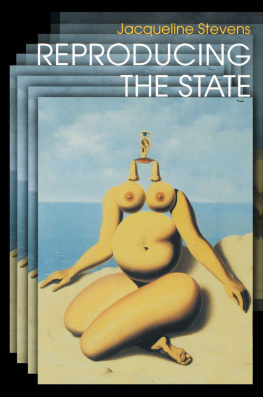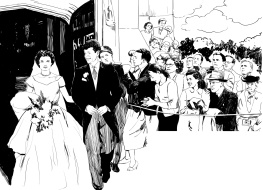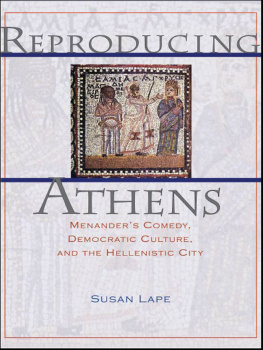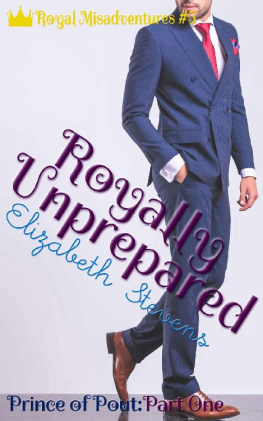Jacqueline Stevens - Reproducing the State
Here you can read online Jacqueline Stevens - Reproducing the State full text of the book (entire story) in english for free. Download pdf and epub, get meaning, cover and reviews about this ebook. year: 2020, publisher: Princeton University Press, genre: Politics. Description of the work, (preface) as well as reviews are available. Best literature library LitArk.com created for fans of good reading and offers a wide selection of genres:
Romance novel
Science fiction
Adventure
Detective
Science
History
Home and family
Prose
Art
Politics
Computer
Non-fiction
Religion
Business
Children
Humor
Choose a favorite category and find really read worthwhile books. Enjoy immersion in the world of imagination, feel the emotions of the characters or learn something new for yourself, make an fascinating discovery.
- Book:Reproducing the State
- Author:
- Publisher:Princeton University Press
- Genre:
- Year:2020
- Rating:5 / 5
- Favourites:Add to favourites
- Your mark:
- 100
- 1
- 2
- 3
- 4
- 5
Reproducing the State: summary, description and annotation
We offer to read an annotation, description, summary or preface (depends on what the author of the book "Reproducing the State" wrote himself). If you haven't found the necessary information about the book — write in the comments, we will try to find it.
Reproducing the State — read online for free the complete book (whole text) full work
Below is the text of the book, divided by pages. System saving the place of the last page read, allows you to conveniently read the book "Reproducing the State" online for free, without having to search again every time where you left off. Put a bookmark, and you can go to the page where you finished reading at any time.
Font size:
Interval:
Bookmark:
Jacqueline Stevens
Copyright 1999 by Princeton University Press
Published by Princeton University Press, 41 William Street,
Princeton, New Jersey 08540
In the United Kingdom: Princeton University Press, Chichester,
West Sussex
All Rights Reserved
Library of Congress Cataloging-in-Publication Data
Stevens, Jacqueline, 1962
Reproducing the state / Jacqueline Stevens,
p. cm.
Includes bibliographical references.
ISBN 0-691-01713-1 (cloth : alk. paper). ISBN 0-691-01714-X (pbk. : alk. paper)
eISBN 978-0-691-22244-8
1. EthnicityPolitical aspects. 2. Race relations. 3. Sex role. 4. Kinship. 5. Political anthropology. I. Title.
GN495.6.S74 1999
305.8dc21 98-55312
http://pup.princeton.edu
R0
vii
ix
One
The State of Membership 50
Two
The Nation and the Tragedy of Birth 102
Three
The Semiotics of Nationality: Naming Names 149
Four
Race and the State: Male-Order Brides and the Geographies of Race 172
Five
Compensatory Kinship Rules: The Mother of Gender 209
Six
The Religious Future 236
299
AS A graduate student I had the privilege of being taught by Hanna Pitkin, who provided comments on the Introduction and . Pitkin, along with my colleague Don Herzog, pressed me early on to reflect on the parallels between the uses of race and other words for concepts that express gradual and not categorical understandings of the world. I also want to thank Mary Dietz, Philip Green, Michael Rogin, and Jeremy Waldron, for their early and long-standing support, advice, and inspiration.
The manuscript benefited enormously from various institutional and personal commitments to interdisciplinary scholarship at the University of Michigan. The faculty-graduate workshop Comparative Studies in Social Transformations (CSST), sponsored by the International Institute, enabled me to meet literary theorists, historians, anthropologists, and sociologists here and elsewhere whose ideas and enthusiasms permeate this book in ways too numerous to recount. I especially want to thank Ann Stoler, who provided comments on the Introduction and , and who has been a helpful interlocutor on questions of race and Foucault. I am grateful, also, to the other members of our writing group, which has included Julia Adams, Sonya Rose, Margaret Somers, and Katherine Verdery. One of Somerss typically useful suggestions was the notion of an iconographic Foucault, which appears in the Introduction. Along with F. Trenholme Junghans, Verdery provided valuable assistance on various sources in anthropology.
I also want to thank Elizabeth Anderson, Nicholas Dirks, and Sally Haslanger for their comments on .
Two people have assisted me with translations. I want to thank Christine Schoefer, for her advice on my interpretations of idiomatic and philosophical German phrases. Also assisting me was Arlene Saxonhouse, who provided translations of various phrases from Latin and Greek. I do not read Latin or Greek, so any errors are due to my misunderstandings of what Saxonhouse told me.
I want to gratefully acknowledge the support of the Robert Wood Johnson Foundation, which funded my research at Yale University from 1997 to 1999, and that of the University of Michigan Rackham University Distinguished Faculty Research grant. The New School for Social Research has my appreciation for funding Rebecca Musselman, who compiled the index. Amy Heibel read the page proofs.
Marek Steedman tracked down numerous journal articles, as well as statistics on immigration to and from Mississippi, with equal efficiency and good cheer. The University of Michigans Research Opportunity Program provided me the research assistance of Jill Durocher and Ellerie Weber in 19951997. And my thanks to Gordon Adams, who kindly allowed me access to the computer facilities at the University of California at Berkeleys Department of Political Science in the summer of 1997.
Portions of was published in Theory & Event Issue 2:2 (1998) and appears here with their permission.
Ann Himmelberger Wald, Editor-in-Chief at Princeton University Press, also has my gratitude, for her early interest that proved sustaining. And I want to express my appreciation to the Presss readers, for their conscientious and lengthy comments that significantly informed my revisions.
Finally, I was fortunate to have the assistance of Samantha Frost, who provided instant, thorough, and terrifically useful readings and suggestions for the Introduction and . My arguments have again benefited from the astute and thorough comments of Laura Green, who read the entire manuscript. For her indefatiguable support and attention to my work I will always be in her debt.
The newly built Croatian National Library on the outermost corner of Zagrebfar from the Parliament and other buildings that attracted Serbian strafing during the early 1990sstands out as a hyper-modern government building in the nine hundred-year-old city. The immense structure echoes many of the design motifs of the sleek, imposing Berlin Staatsbibliothek, and the resemblance between the two state libraries may not be coincidental. Germany and Croatia have long-standing affinities. Croatia offered broad support for the Nazi-installed regime during World War Two. In 1991 Germany was the first country to grant Croatia recognition as a sovereign political societyin opposition to the wishes of the United States and the United Nations. It was this action that officially transformed the skirmishes within the fractious Yugoslavia into a full-blown war. If the Croatian state architectural firm were to look to any European national library for inspiration, it would be that of Germany. (The coldness of the librarys stone, concrete, and glass materials betrays an affinity with another Zagreb building designed by the same architectural firm: the state crematorium.)
In the summer of 1996, a Croatian colleague, Maria, and I mistakenly entered through the rear of the Zagreb library, where we were met by the state militia, armed with sub-machine guns and ensconced behind a bullet-proof window. Our reception in the public entrance was not all that different. The catalogues and other reference materials are separated from the lobby by locked turnstiles. In order to gain access, one must answer various questions about ones nationality, for purposes of a bar-coded card that is issued for 20 kunas (about $4).
The allusive overlapping themes of nationalism, genocide, war, state knowledge, and state secrets implied in this rendering of Croatias library instantiate the paradoxes of the state form as simultaneously one of rationality and insanity, tidy rules and the messy triumph of bloodin the particular, as in my peoples blood must survive at the expense of your people, as well as blood-s more general significations, as when there is a consensus that, say, blood is thicker than water. The immaculate library staffed by vacant-faced bureaucrats above the basement-level army personnel was hundreds of miles from Mostar, where a Croatian general had led the eviction and slaughter of hundreds of Muslims, but the places were not so distant after all. As was the case in the Nazi extermination of Communists, Jews, Gypsies, and homosexuals, the states assembly-line approach to mass killing was the means to the very personal, particular, and obviously embodied experiences of, if not killing, then dying.
The misleading quality of my narrative is that by referencing a place of such recent and horrifying violence the implications of the same routinized expressions of the state that occur in so-called liberal political societieswhich also strictly regulate the movement of populations and the reproduction of national symbolsmay be elided or appear harmless. The political constitution of adversarial forms of being is not the work of a few zealots in the Balkans but is ubiquitous.
Font size:
Interval:
Bookmark:
Similar books «Reproducing the State»
Look at similar books to Reproducing the State. We have selected literature similar in name and meaning in the hope of providing readers with more options to find new, interesting, not yet read works.
Discussion, reviews of the book Reproducing the State and just readers' own opinions. Leave your comments, write what you think about the work, its meaning or the main characters. Specify what exactly you liked and what you didn't like, and why you think so.












